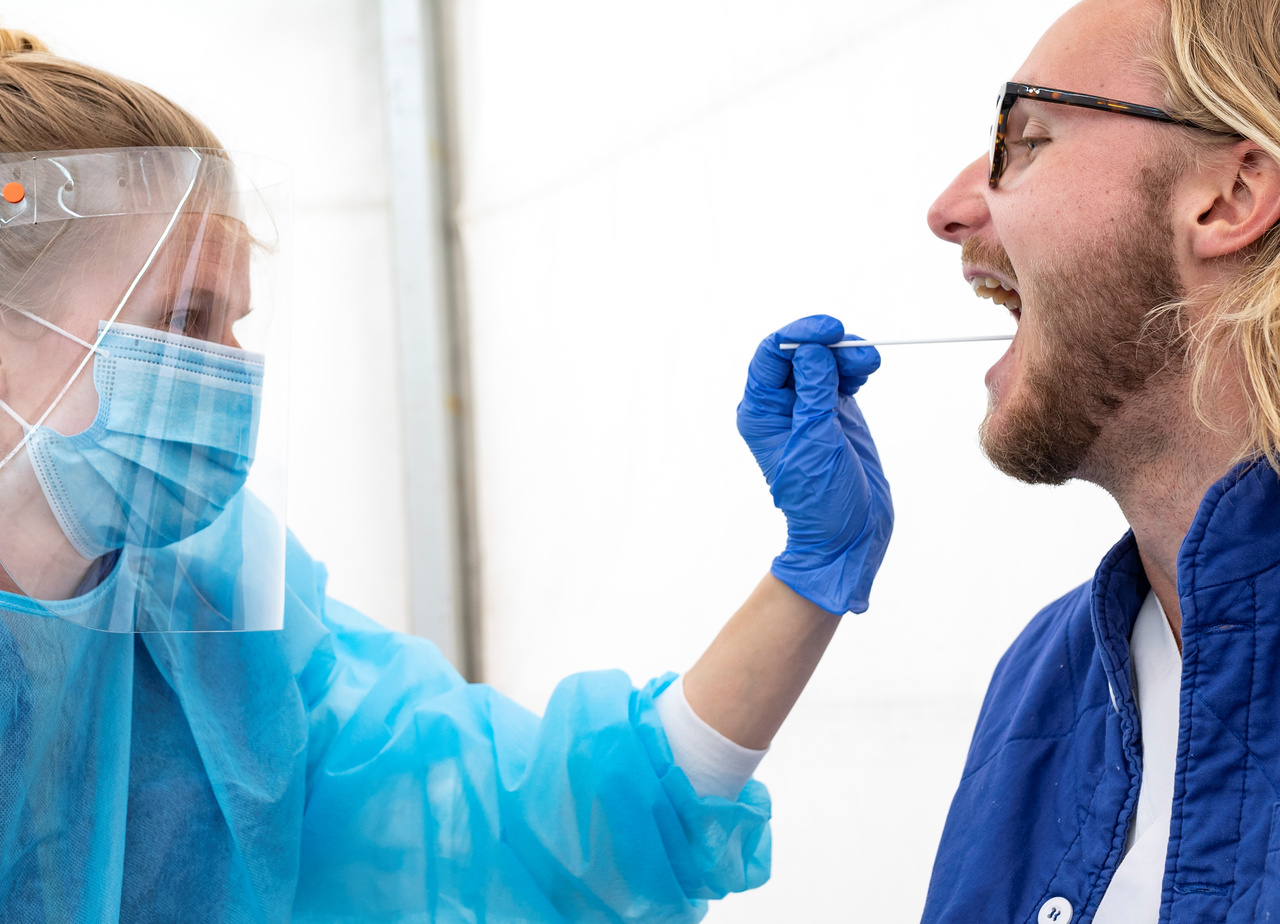Sweden says coronavirus immunity can last 6 months after infection
Sign up now: Get ST's newsletters delivered to your inbox

The Swedish Public Health Agency said it is now considered safe for individuals who've been infected to come into contact with people in high-risk groups.
PHOTO: REUTERS
STOCKHOLM (BLOOMBERG) - Sweden's top health authority says people who have had the novel coronavirus are likely to be immune for at least six months after being infected, whether they have developed antibodies or not.
In new guidance published on Tuesday (July 21), the Swedish Public Health Agency said it's now considered safe for individuals who've been infected to come into contact with people in high-risk groups.
"We don't see cases of people falling ill twice from Covid-19," state epidemiologist Anders Tegnell said during a press conference in Stockholm. "Hence, our assessment is that if you do get Covid-19 you are immune, even if you don't develop antibodies."
But the agency also said that people deemed to be immune can still act as carriers of the virus in society, and must therefore continue to observe social distancing and hygiene guidelines.
The antibody response to Covid-19 is being closely studied by scientists around the world for indications of how long-lasting immunity may be. While there is little evidence to suggest reinfections are occurring, health experts have yet to pin down exactly how long immunity might last.
A recent study from King's College London showed that the level of antibodies may drop to a degree that makes them undetectable as soon as three months after infection. However, the body also mounts other forms of immunity responses, including from so-called T-cells, which appear to play an important role in protecting against reinfection with Covid-19.
Research from Sweden's Karolinska Institutet has indicated that about twice as many people infected by Covid-19 have developed a T-cell mediated immunity response as those who have a detectable level of antibodies.
"The risk of being reinfected and of transmitting the disease to other people is probably very close to zero," Dr Tegnell said. "Therefore, we think that you can meet other people, even if they are in a high-risk group."
Dr Tegnell said he expects a vaccine to be ready for distribution in Sweden "sometime during the first half of 2021", barring setbacks in the development process.
AstraZeneca has signed an agreement to supply up to 400 million doses to European countries from the end of 2020. The company's joint efforts with the University of Oxford to develop a vaccine showed promising results this week.
But Dr Tegnell said that "anything else would have been a disaster for AstraZeneca".
Dr Tegnell remains a controversial figure for his decision to advise against imposing a proper lockdown in Sweden. The country currently has one of the highest death rates in the world, measured per 100,000, according to data compiled by Johns Hopkins University.
But there are also signs that the contagion rate in Sweden is slowing, and Dr Tegnell insists his strategy will ultimately be proven a success. That is as he comes under attack from academics and scientists in his own country, who say he has mishandled the crisis.
The US Centres for Disease Control and Prevention currently recommends that people who have recovered from Covid-19 should follow quarantine recommendations if they are identified as a contact of a new case when more than 3 months have passed since the onset of the disease.
On Tuesday, Dr Tegnell said Sweden "probably" has achieved a fairly high rate of immunity, which he predicts will protect his country from new outbreaks.
"The upshot is that the epidemic is now slowing down very drastically, in a way that I think few of us would have thought a few weeks ago," he said. "I am very happy about that. It makes it easier for health care services, and we have fewer fatalities."


